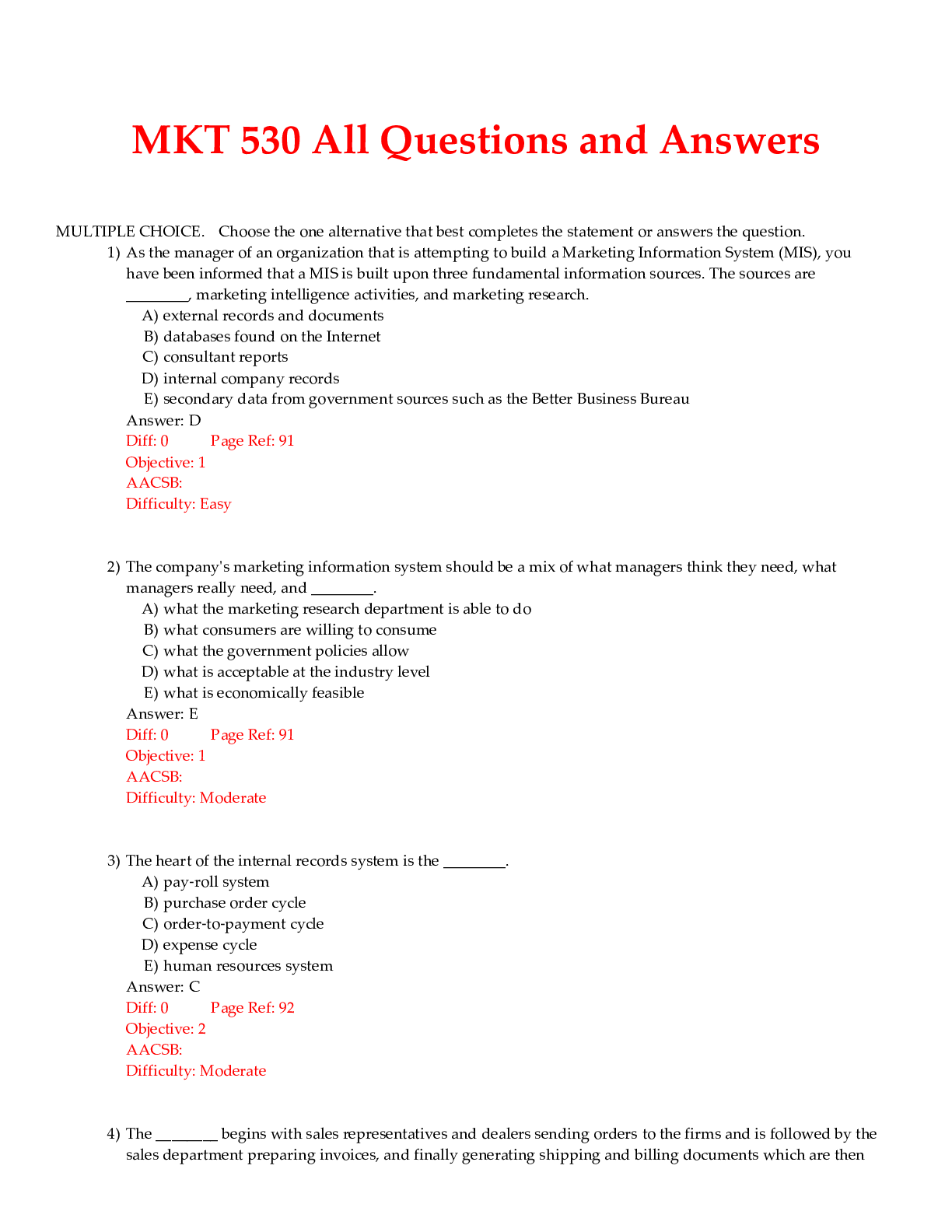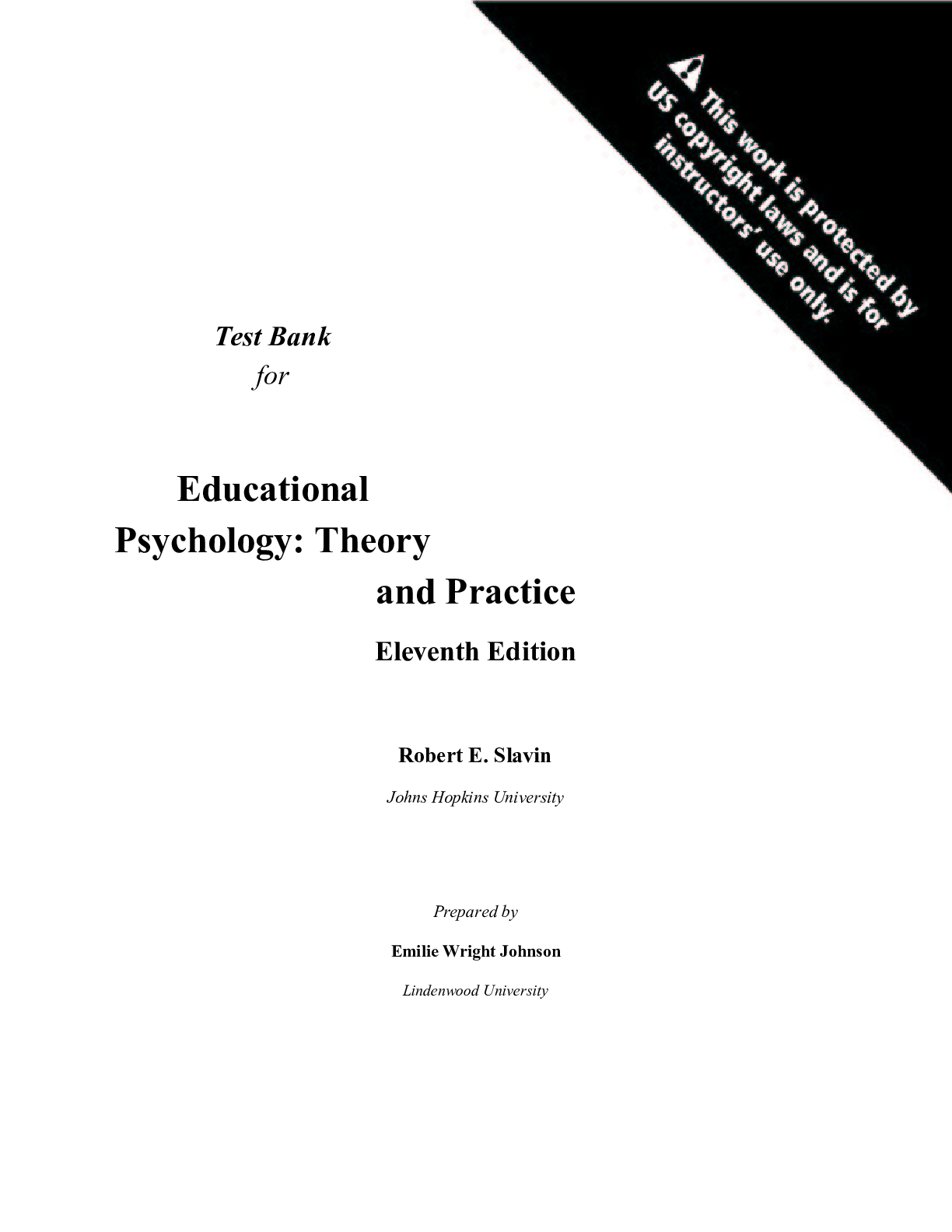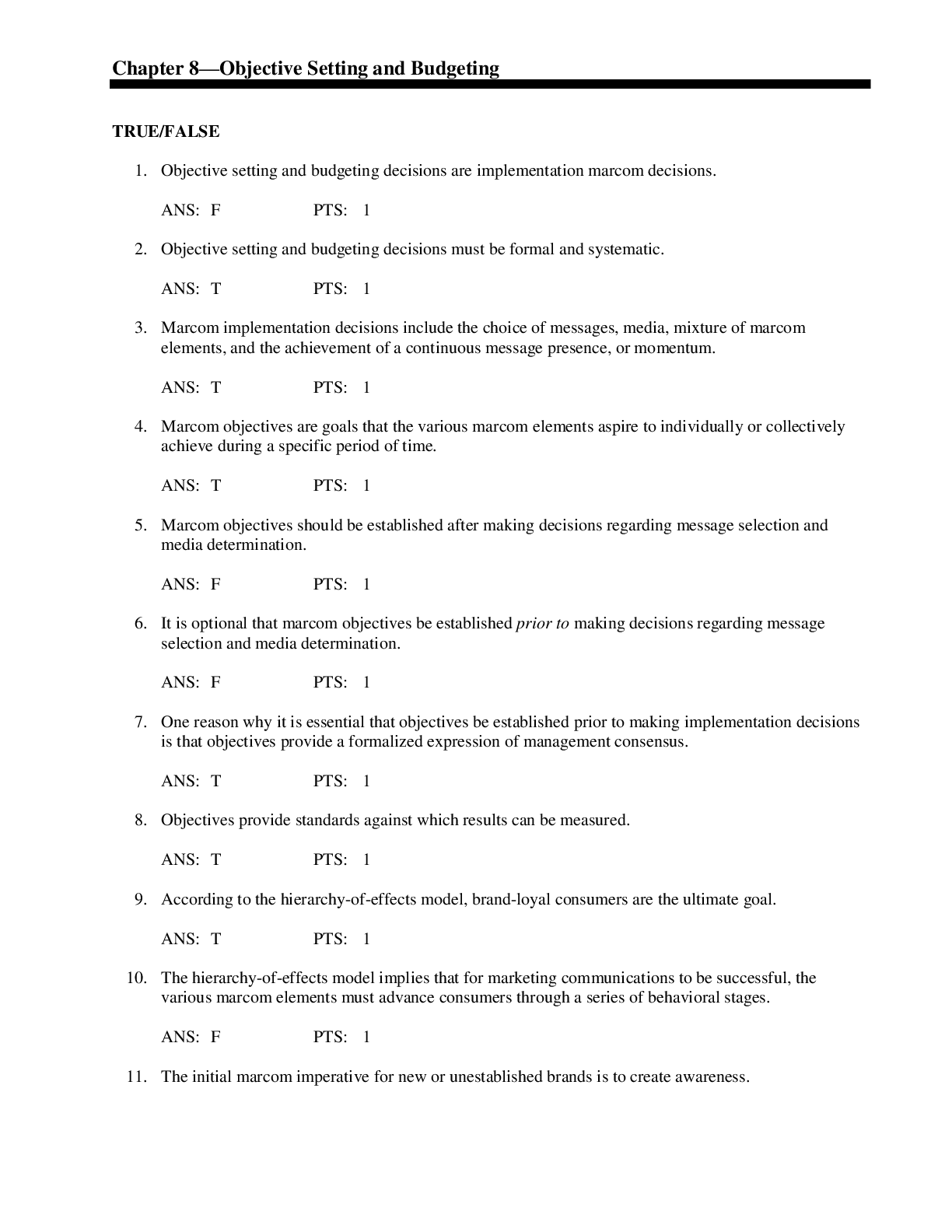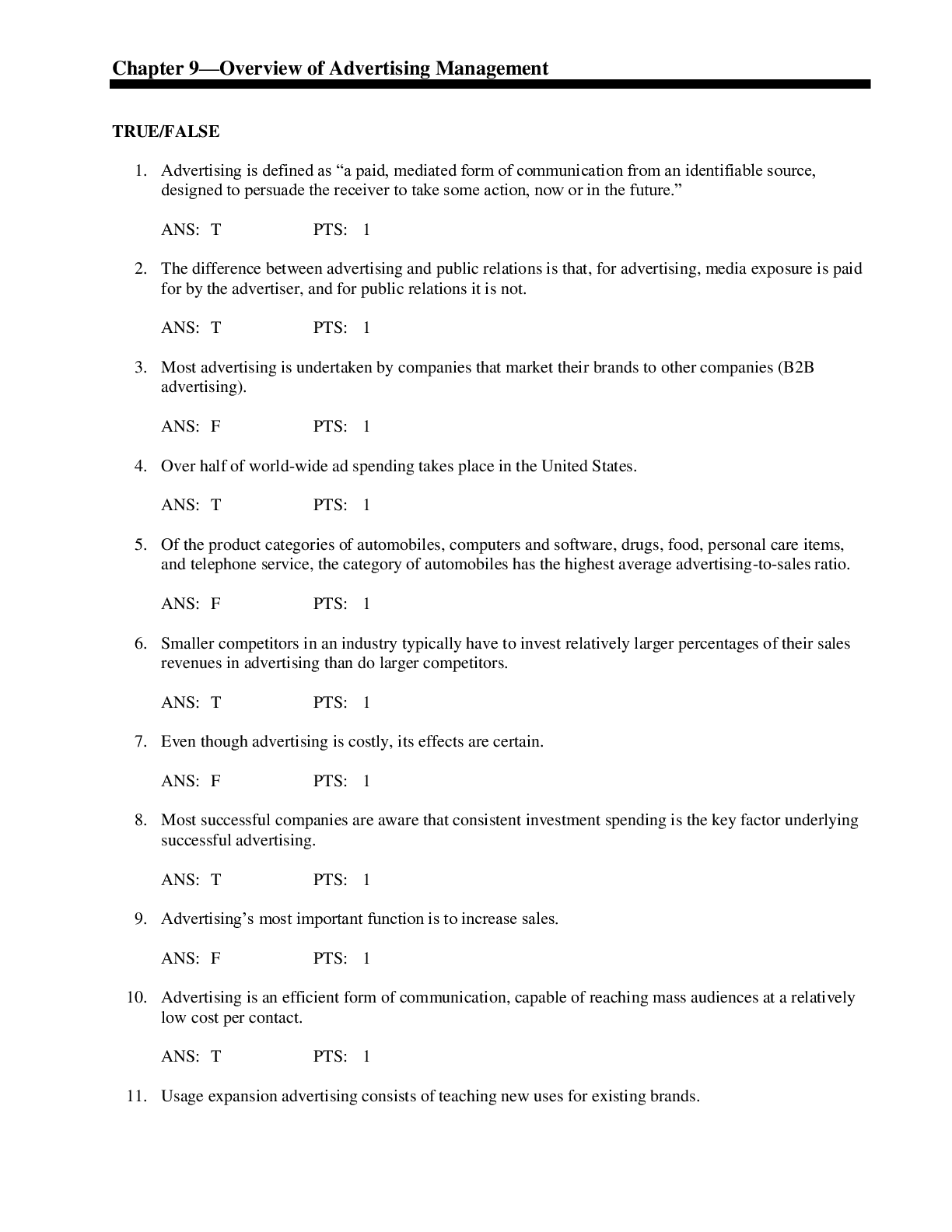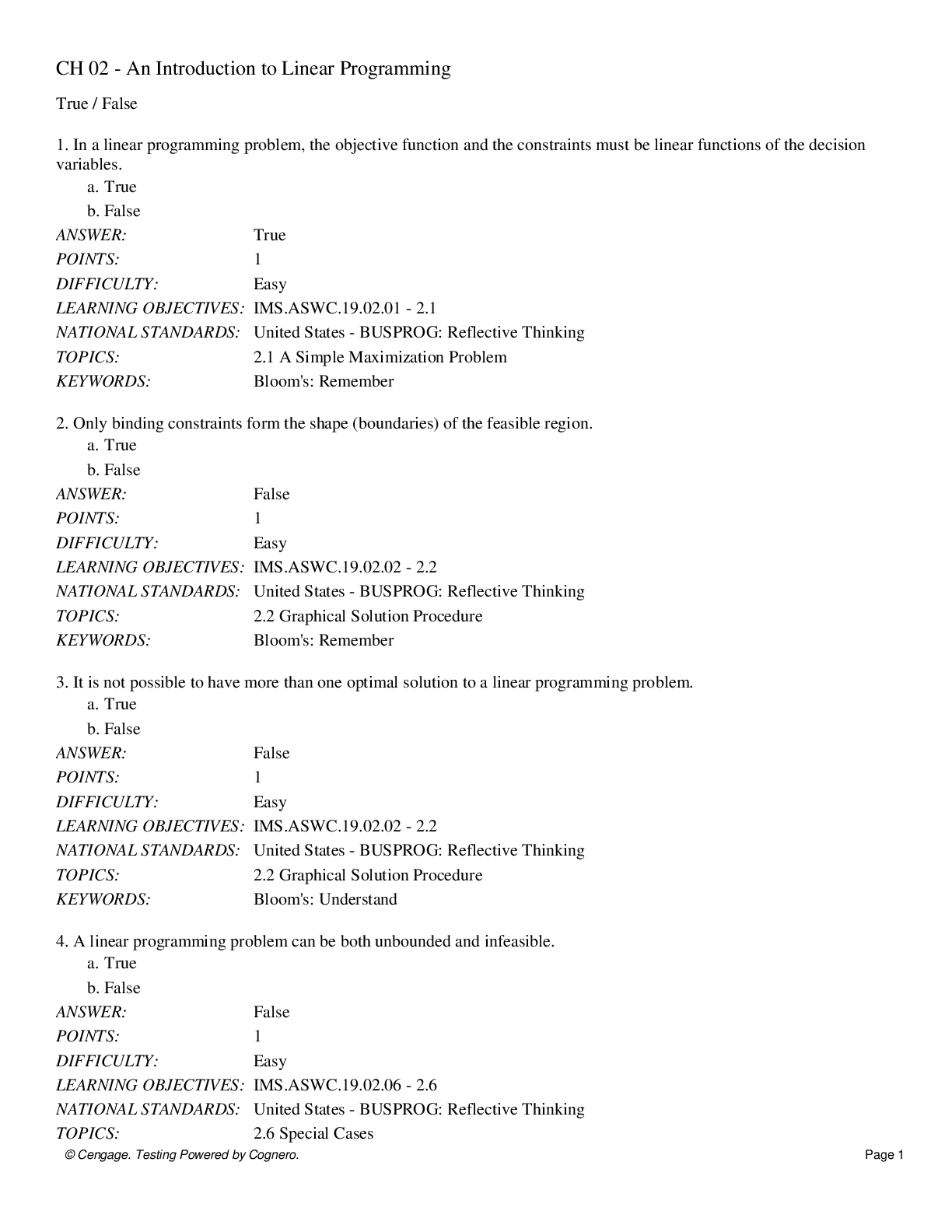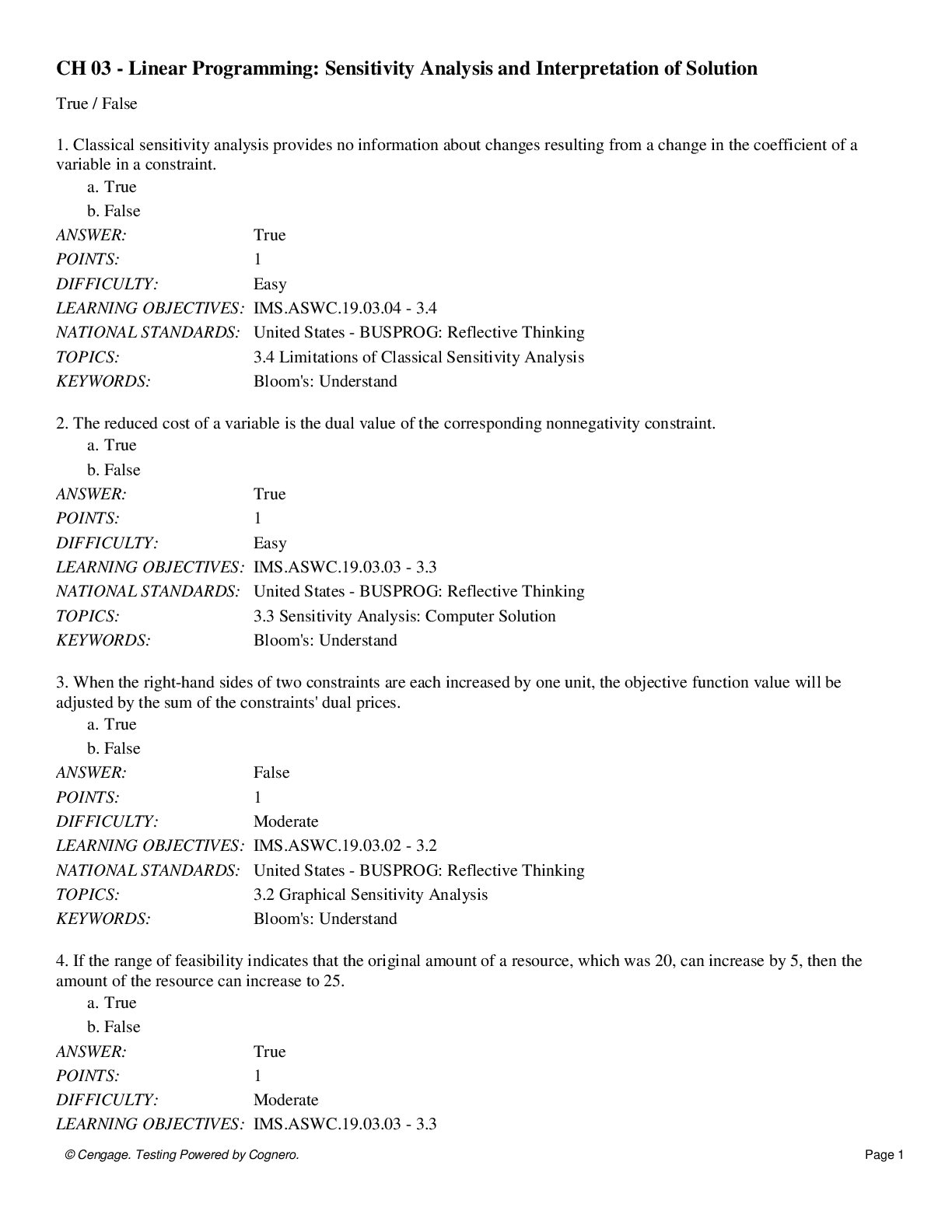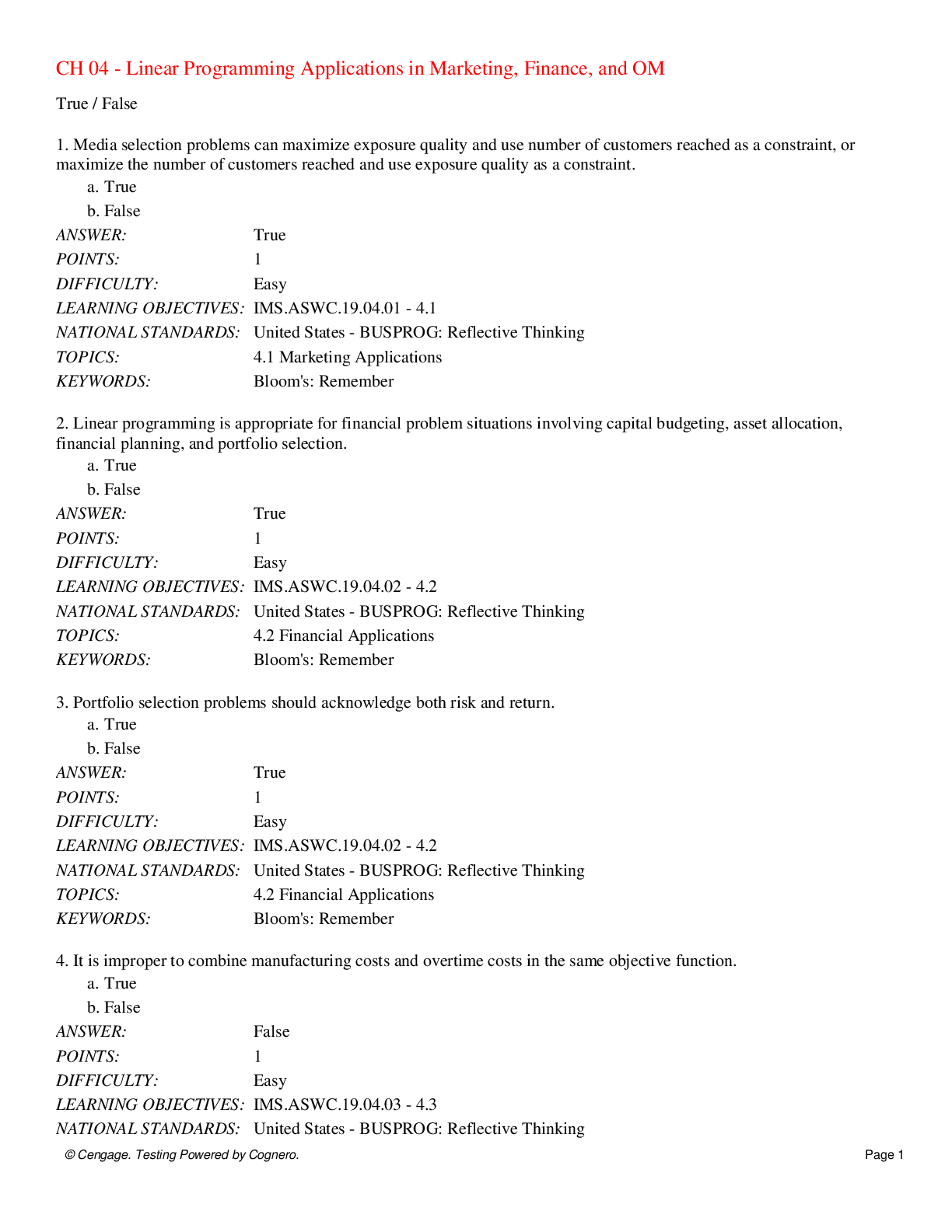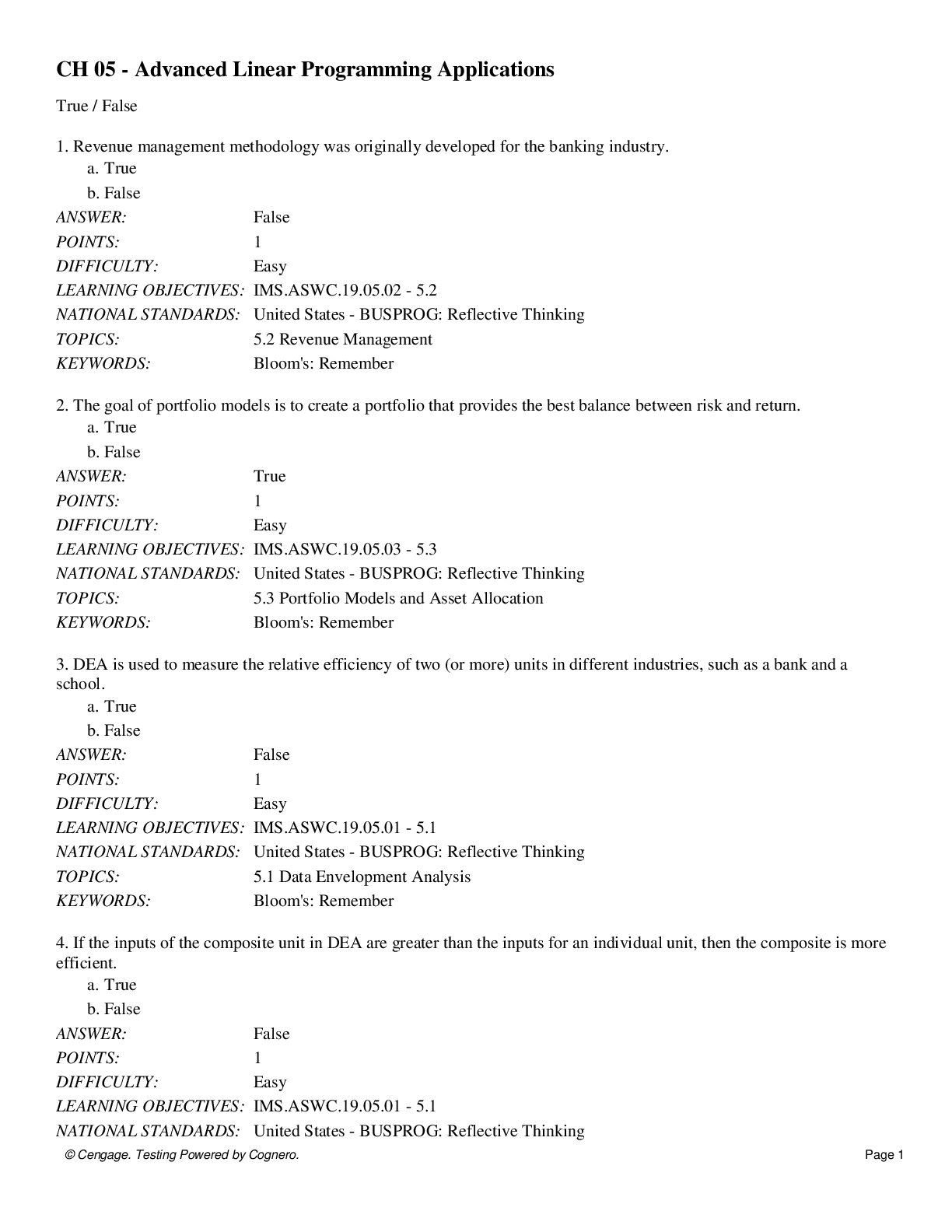History > QUESTIONS & ANSWERS > American Revolution Questions and Answers Rated A (All)
American Revolution Questions and Answers Rated A
Document Content and Description Below
American Revolution Questions and Answers Rated A Merchantilism ✔✔Economic policy used by the British in which the colonies served as a source of raw materials and a market to sell goods to. N... avigation Acts ✔✔A series of British regulations which taxed goods imported by the colonies from places other than Britain, or otherwise sought to control and regulate colonial trade. Increased British-colonial trade and tax revenues. The Navigation Acts were reinstated after the French and Indian War because Britain needed to pay off debts incurred during the war, and to pay the costs of maintaining a standing army in the colonies. Great Awakening ✔✔Puritanism had declined by the 1730s, and people were upset about the decline in religious piety. The Great Awakening was a sudden outbreak of religious fervor that swept through the colonies. Evangelical preachers encouraged greater religious enthusiasm and political independence. One of the first events to UNIFY THE COLONIES. Jonathan Edwards ✔✔Preacher during the First Great Awakening; "Sinners in the hands of angry god" John Peter Zenger ✔✔Journalist who questioned the policies of the governor of New York in the 1700's. He was jailed; he sued, and this court case was the BASIS FOR OUR FREEDOM OF SPEECH AND PRESS He was found not guilty. Colonial Government ✔✔Indirect Rule: Colonial government in which local rulers are allowed to maintain their positions of authority and status Social Mobility ✔✔The ability of individuals to move from one social standing to another. Social standing is based on degrees of wealth, prestige, education and power. French & Indian War ✔✔American version of the 7 Year's War, French and Indians fight colonists and are victorious in early stages, then British pour on the pressure and emerge victorious, end-result French are removed from North America and Britain is left in debt. Albany Plan of Union ✔✔Plan proposed by Benjamin Franklin in 1754 that aimed to unite the 13 colonies for trade, military (defense), and other purposes; the plan was turned down at every colonial assembly and by the Crown. Peace of Paris (1763) ✔✔Ended the French and Indian (Seven Years') War, France gave up all their territories in the mainland of North America. Salutary Neglect ✔✔150 years of colonial self-rule due to Neglect by British authorities British colonial policy during the reigns of George I and George II. Relaxed supervision of internal colonial affairs by royal bureacrats contributed significantly to the rise of American self government Pontiac's Rebellion ✔✔1763 - An Indian uprising after the French and Indian War, led by an Ottowa chief named Pontiac. They opposed British expansion into the western Ohio Valley and began destroying British forts in the area. The attacks ended when Pontiac was killed. Sugar Act ✔✔(1764) British deeply in debt partl to French & Indian War. English Parliament placed a tariff on sugar, coffee, wines, and molasses. colonists avoided the tax by smuggling and by bribing tax collectors. Stamp Act ✔✔An act passed by the British parliament in 1756 that raised revenue from the American colonies by a duty in the form of a stamp required on all newspapers and legal or commercial documents Quartering Act ✔✔1765 - Required the colonials to provide food, lodging, and supplies for the British troops in the colonies. Stamp Act Congress ✔✔A meeting of delegations from many of the colonies, the congress was formed to protest the newly passed Stamp Act It adopted a declaration of rights as well as sent letters of complaints to the king and parliament, and it showed signs of colonial unity and organized resistance. Sons of Liberty ✔✔A radical political organization for colonial independence which formed in 1765 after the passage of the Stamp Act. They incited riots and burned the customs houses where the stamped British paper was kept. After the repeal of the Stamp Act, many of the local chapters formed the Committees of Correspondence which continued to promote opposition to British policies towards the colonies. The Sons leaders included Samuel Adams and Paul Revere. Daughters of Liberty ✔✔This organization supported the boycott of British goods. They urged Americans to wear homemade fabrics and produce other goods that were previously available only from Britain. They believed that way, the American colonies would become economically independent. Declaratory Act ✔✔(1766) Stated that the British Parliament had the same power to tax in the colonies as it did in Great Britain. Parliament emphasized its authority to make binding laws on the American colonies. Townshend Acts ✔✔A tax that the British Parliament passed in 1767 that was placed on leads, glass, paint and tea Writs of Assistance ✔✔It was part of the Townshend Acts. It said that the customs officers could inspect a ship's cargo without giving a reason. Colonists protested that the Writs violated their rights as British citizens. John Dickinson's Letters from a Pennsylvania Farmer ✔✔An incredible popular pamphlet published in the colonies. Argued that Parliament could regulate colonial trade, but could not exercise that power to raise revenue. Sam Adams ✔✔A member of the Sons of Liberty who started the Committee of Correspondence to stir public support for American independence. John Adams ✔✔A Massachusetts attorney and politician who was a strong believer in colonial independence. He argued against the Stamp Act and was involved in various patriot groups. As a delegate from Massachusetts, he urged the Second Continental Congress to declare independence. He helped draft and pass the Declaration of Independence. Adams later served as the second President of the United States. George Washington ✔✔1st President of the United States; commander-in-chief of the Continental Army during the American Revolution (1732-1799) Thomas Jefferson ✔✔3rd President of the United States , He was a delegate from Virginia at the Second Continental Congress and wrote the Declaration of Independence. He later served as the third President of the United States. James Otis ✔✔A colonial lawyer who defended (usually for free) colonial merchants who were accused of smuggling. Argued against the writs of assistance and the Stamp Act. Massachusetts Circular Letter ✔✔A letter written in Boston and circulated through the colonies in February, 1768, which urged the colonies not to import goods taxed by the Townshend Acts. Boston, New York, and Philadelphia agreed to non-importation. It was followed by the Virginia Circular Letter in May, 1768. Parliament ordered all colonial legislatures which did not rescind the circular letters dissolved. Boston Massacre ✔✔The first bloodshed of the American Revolution (1770), as British guards at the Boston Customs House opened fire on a crowd killing five Americans Crispus Attucks ✔✔A free black man who was the first person killed in the Revolution at the Boston Massacre. Committees of Correspondence ✔✔Organized by patriot leader Samuel Adams, was a system of communication between patriot leaders in New England and throughout the colonies. They provided the organization necessary to unite the colonies in opposition to Parliament. The committees sent delegates to the First Continental Congress. Tea Act ✔✔1773 act which eliminated import tariffs on tea entering England and allowed the British East India Company to sell directly to consumers rather than through merchants. Led to the Boston Tea Party. Boston Tea Party ✔✔A 1773 protest against British taxes in which Boston colonists disguised as Mohawks dumped valuable tea into Boston Harbor. Coercive Acts (Intolerable Acts) ✔✔This series of laws were very harsh laws that intended to make Massachusetts pay for its resistance. It also closed down the Boston Harbor until the Massachusetts colonists paid for the ruined tea. Also forced Bostonians to shelter soilders in their own homes. Quebec Act ✔✔Extended boundaries of Quebec and granted equal rights to Catholics and recognized legality Catholic Church in the territory; colonists feared this meant that a pope would soon oversee the colonies. Deism ✔✔A popular Enlightenment era belief that there is a God, but that God isn't involved in people's lives or in revealing truths to prophets. John Locke ✔✔17th century English philosopher who opposed the Divine Right of Kings and who asserted that people have a natural right to life, liberty, and property. First Continental Congress ✔✔The First Continental Congress convened on September 5, 1774, to protest the Intolerable Acts. The congress endorsed the Suffolk Resolves, voted for a boycott of British imports, and sent a petition to King George III, conceding to Parliament the power of regulation of commerce but stringently objecting to its arbitrary taxation and unfair judicial system. Declaration of Rights & Grievances ✔✔French Revolution document that outlined what the National Assembly considered to be the natural rights of all people and the rights that they possessed as citizens. Motivated and influenced by U.S. Declaration of Independence. Lexington and Concord ✔✔April 8, 1775: Gage leads 700 soldiers to confiscate colonial weapons and arrest Adam, and Hancock; April 19, 1775: 70 armed militia face British at Lexington (shot heard around the world); British retreat to Boston, suffer nearly 300 casualties along the way (concord) Bunker Hill ✔✔(June 17, 1775) Site of a battle early in the Revolutionary War. This battle contested control of two hills (Bunker Hill and Breed's Hill) overlooking Boston Harbor. The British captured the hills after the Americans ran-out of ammunition. "Don't shoot until you see the whites of their eyes!" Battle implied that Americans could fight the British if they had sufficient supplies. Second Continental Congress ✔✔Convened in May 1775, the Congress opposed the drastic move toward complete independence from Britain. In an effort to reach a reconciliation, the Congress offered peace under the conditions that there be a cease-fire in Boston, that the Coercive Acts be repealed, and that negotiations begin immediately. King George III rejected the petition. Olive Branch Petition ✔✔On July 8, 1775, the colonies made a final offer of peace to Britain, agreeing to be loyal to the British government if it addressed their grievances (repealed the Coercive Acts, ended the taxation without representation policies). It was rejected by Parliament, which in December 1775 passed the American Prohibitory Act forbidding all further trade with the colonies. Thomas Paine's Common Sense ✔✔Pamphlet written by Thomas Paine. First person to state the idea that the colonists should separate from England. the big idea here is self-government. Declaration of Independence ✔✔1776 statement, issued by the Second Continental Congress, explaining why the colonies wanted independence from Britain. Patriots ✔✔American colonists who were determined to fight the British until American independence was won Loyalists ✔✔American colonists who remained loyal to Britain and opposed the war for independence Women in the Revolution ✔✔Many women had significant roles in the revolutionary War. Many women sewed clothing and blankets for the soldiers, served as nurses and brought them food and water. Back at home women cooked, cleaned and took care of the children. Some tended the farms, made guns, cannons and other supplies. Spies African Americans in the Revolution ✔✔At first and during the war, they were discriminated against, but as time went on, they were able to take jobs of white soldiers and fight in the military. Still segregation. Saratoga ✔✔A battle that took place in New York where the Continental Army defeated the British. It proved to be the turning point of the war. This battle ultimately had France to openly support the colonies with military forces in addition to the supplies and money already being sent. Yorktown ✔✔1781; last battle of the revolution; Benedict Arnold, Cornwallis and Washington; colonists won because British were surrounded and they surrended Final battle of American Revolution; support from France was important Treaty of Paris (1783) ✔✔This treaty ended the Revolutionary War, recognized the independence of the American colonies, and granted the colonies the territory from the southern border of Canada to the northern border of Florida, and from the Atlantic coast to the Mississippi River Articles of Confederation ✔✔1st Constitution of the U.S. 1781-1788 (weaknesses-no executive, no judicial, no power to tax, no power to regulate trade) Land Ordinance of 1785 ✔✔A major success of the Articles of Confederation. Provided for the orderly surveying and distribution of land belonging to the U.S. Northwest Ordinance of 1787 ✔✔Created the Northwest Territory (area north of the Ohio River and west of Pennsylvania), established conditions for self-government and statehood, included a Bill of Rights, and permanently prohibited slavery Shays' Rebellion ✔✔Rebellion led by Daniel Shays of farmers in western Massachusetts in 1786-1787, protesting mortgage foreclosures. It highlighted the need for a strong national government just as the call for the Constitutional Convention went out. J. Hector St. John Crevecoeur ✔✔Letters from an American Farmer. Text about the emerging American society What democratic traditions were evident in colonial America? Which of these traditions were uniquely American? ✔✔Power with the people. Having representation or at least influence. Separation of church and state. Written constitution. Freedom of speech and press. Social mobility Representative/self gov- colonial assemblies Was the American Revolution inevitable? ✔✔The American Revolution was always inevitable. This is because America realized as time went on that they did not need to be part of Britain and they could survive on their own. The taxes that Britain put on America only made it happen faster. They realized that it would also be more organized if they got their independence because they would have their own government and legislature on their own land which would make things like making laws much easier. I would say the thing that caused the American Revolution the most was Britain putting all the taxes on the America. Unification Distance How did the colonists justify independence from Great Britain? What philosophies formed the basis for this argument? ✔✔John Locke- duty of gov is to protect the natural rights of the people, if it failed, the people should overthrow it. Influenced Declaration of Independence Unfair taxes, no representation, unfair laws [Show More]
Last updated: 1 year ago
Preview 1 out of 13 pages
.png)
Buy this document to get the full access instantly
Instant Download Access after purchase
Add to cartInstant download
We Accept:

Also available in bundle (1)
.png)
AMERICAN REVOLUTION BUNDLED EXAMS QUESTIONS AND ANSWERS WITH COMPLETE SOLUTIONS
AMERICAN REVOLUTION BUNDLED EXAMS QUESTIONS AND ANSWERS WITH COMPLETE SOLUTIONS
By Nutmegs 1 year ago
$20
20
Reviews( 0 )
$10.00
Document information
Connected school, study & course
About the document
Uploaded On
Feb 02, 2023
Number of pages
13
Written in
Additional information
This document has been written for:
Uploaded
Feb 02, 2023
Downloads
0
Views
103

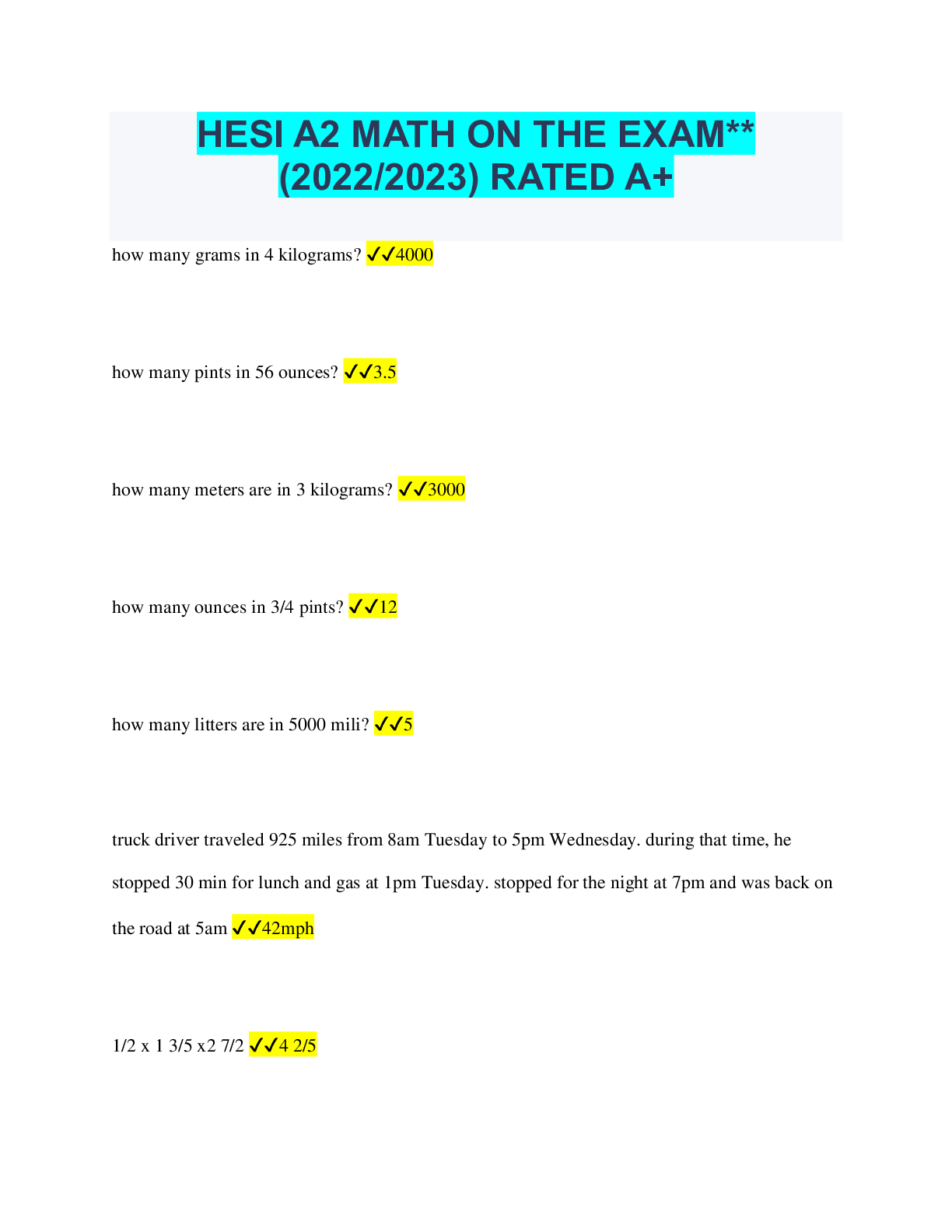

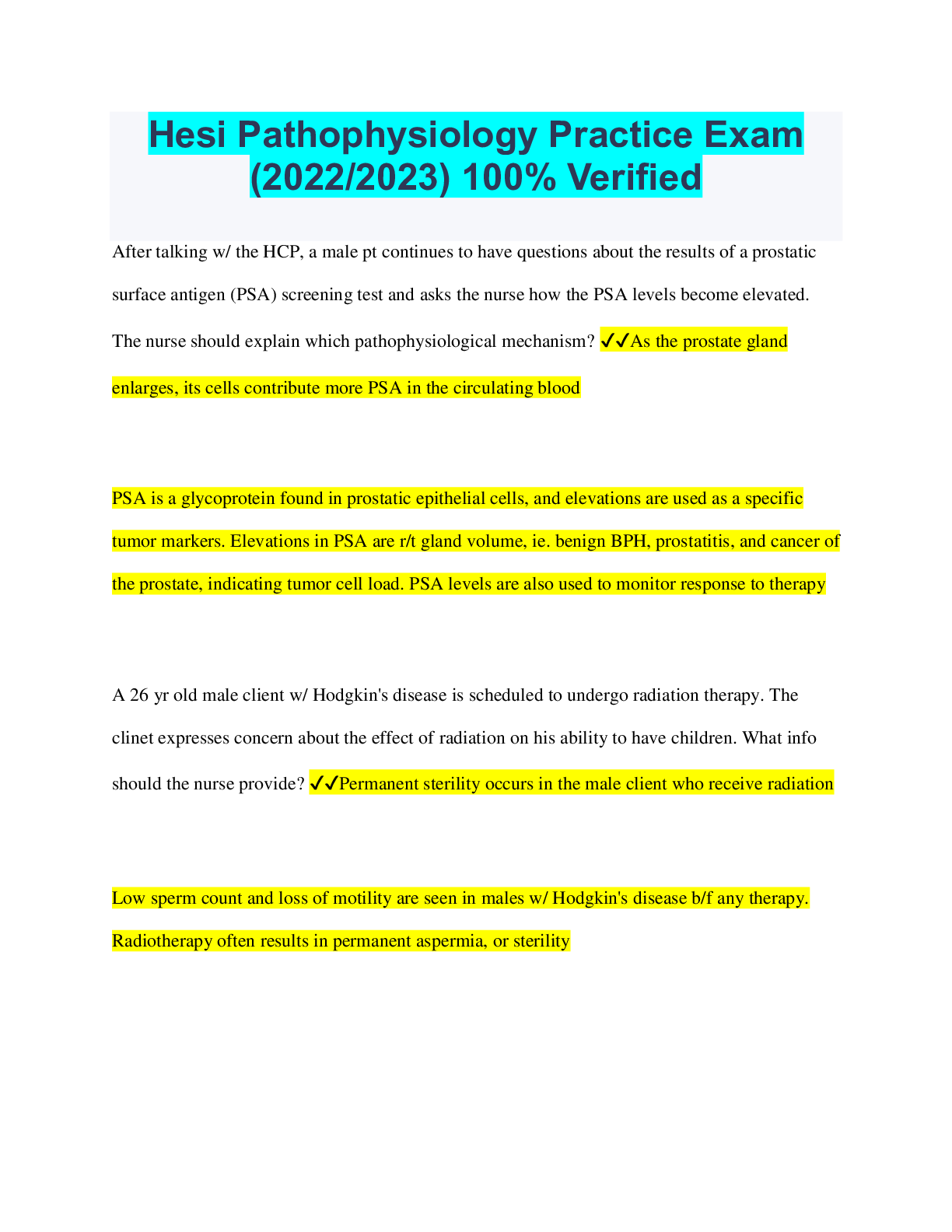
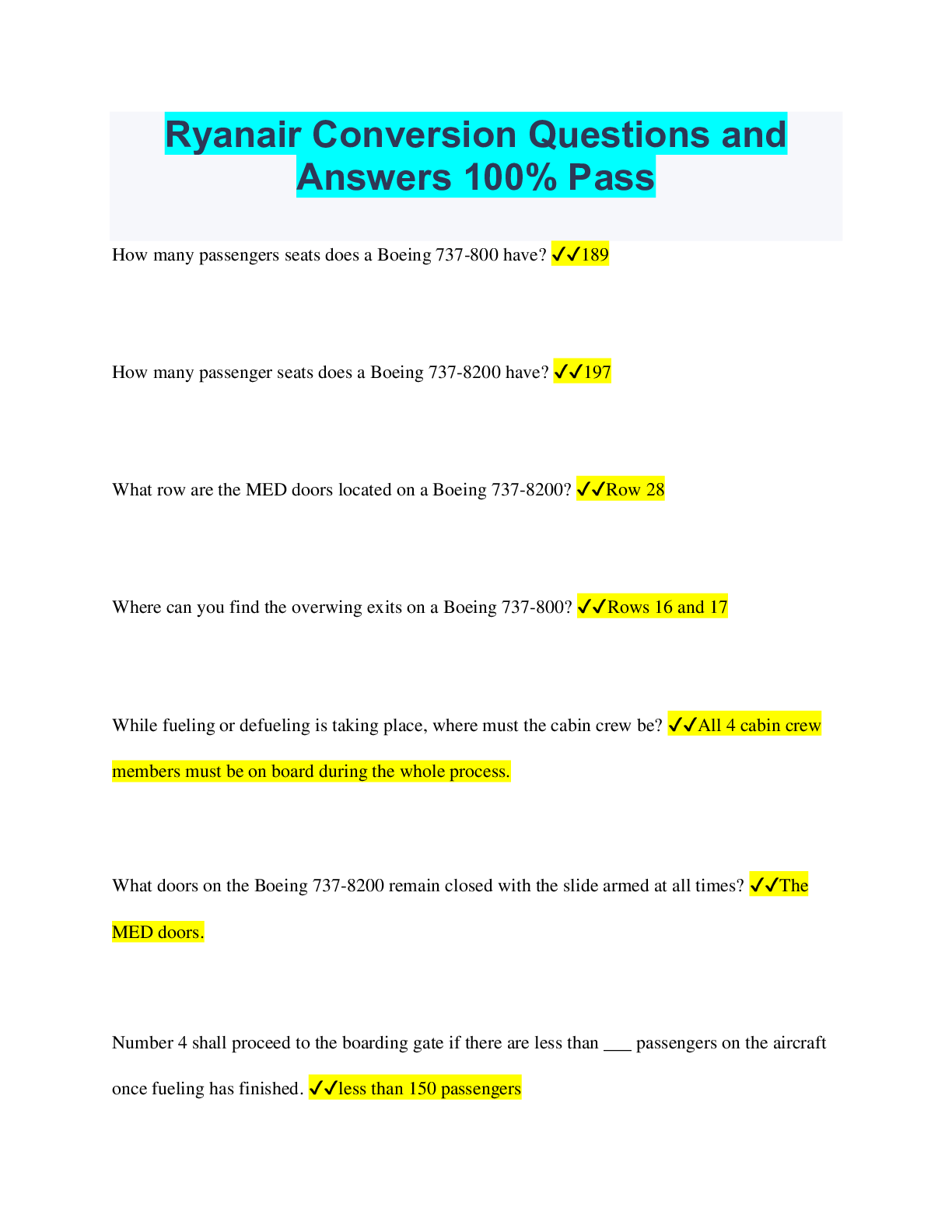
.png)
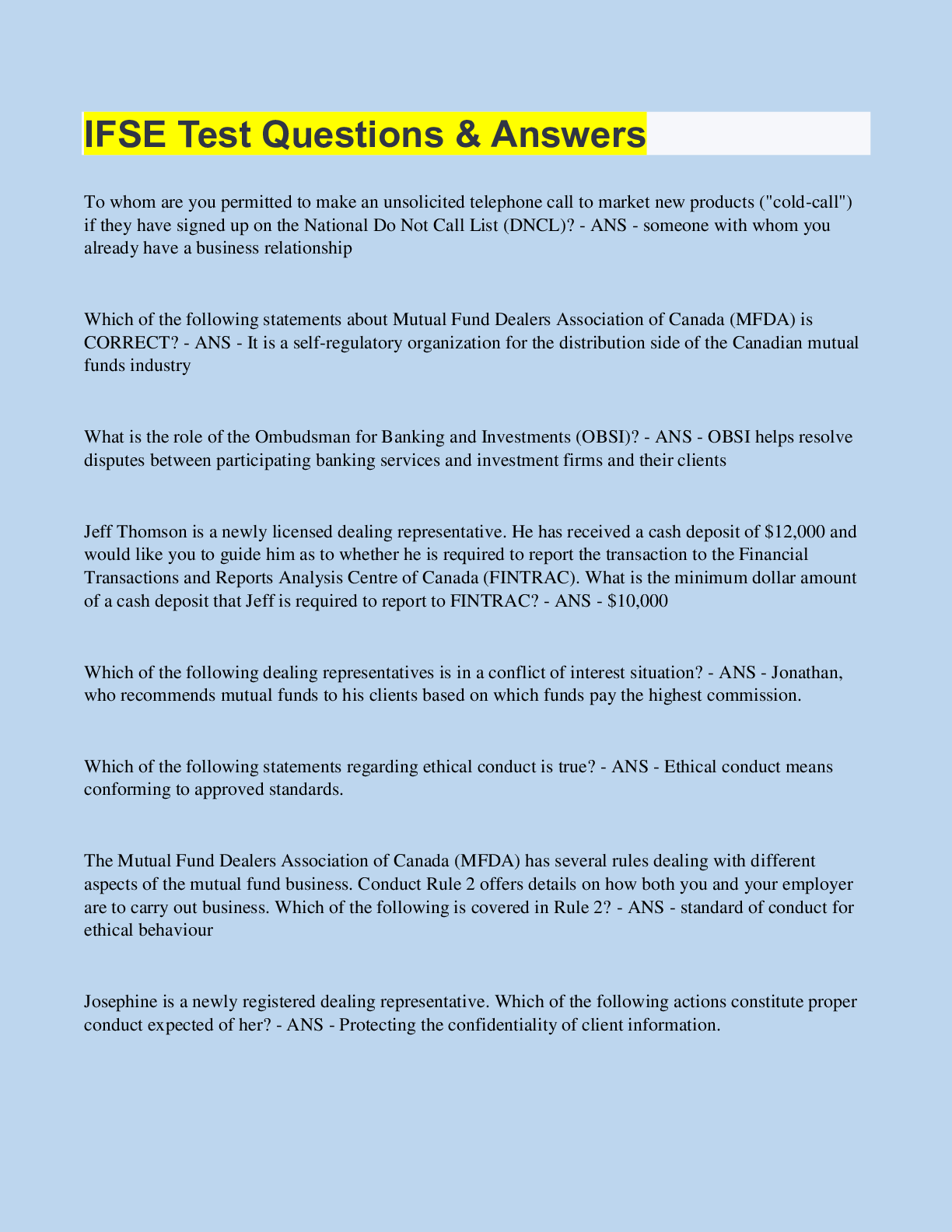
.png)
.png)
.png)
.png)
.png)
.png)
